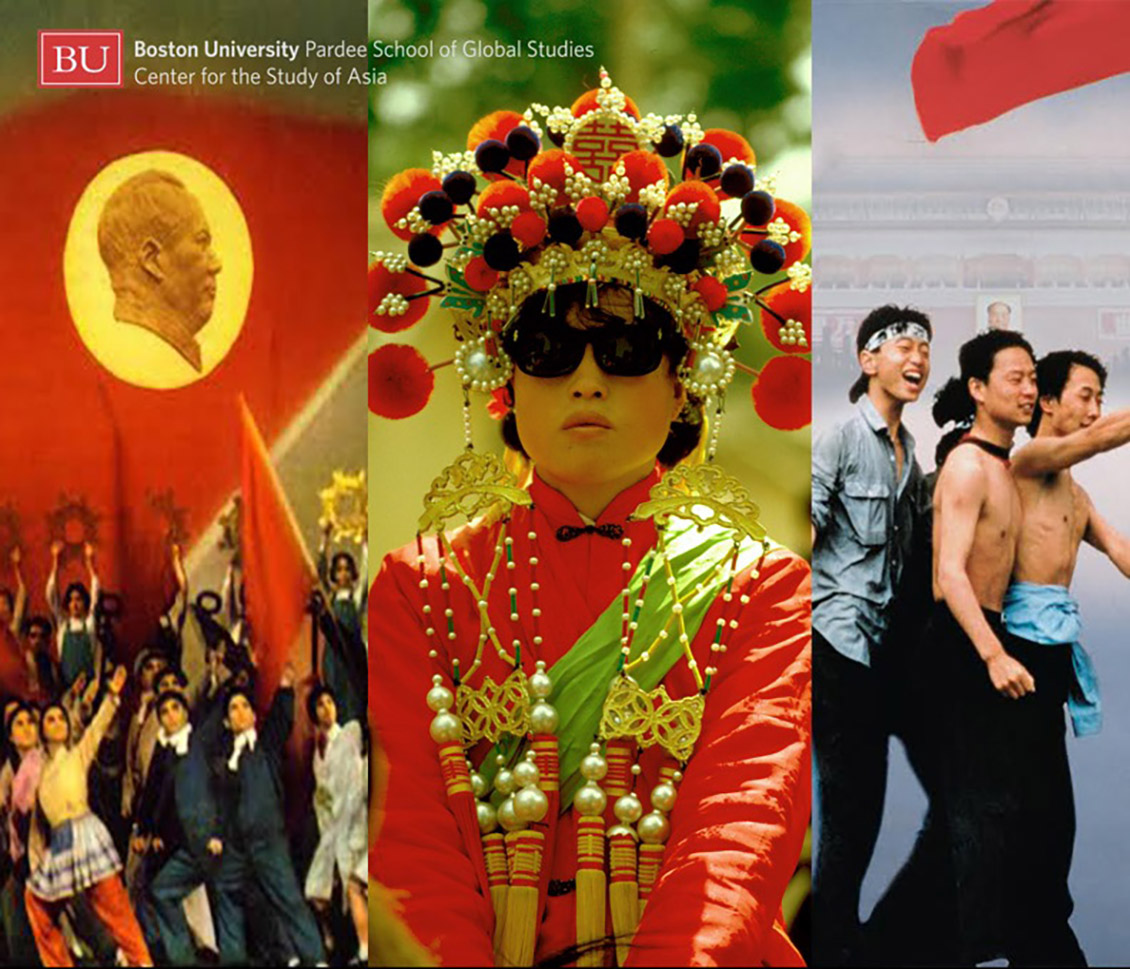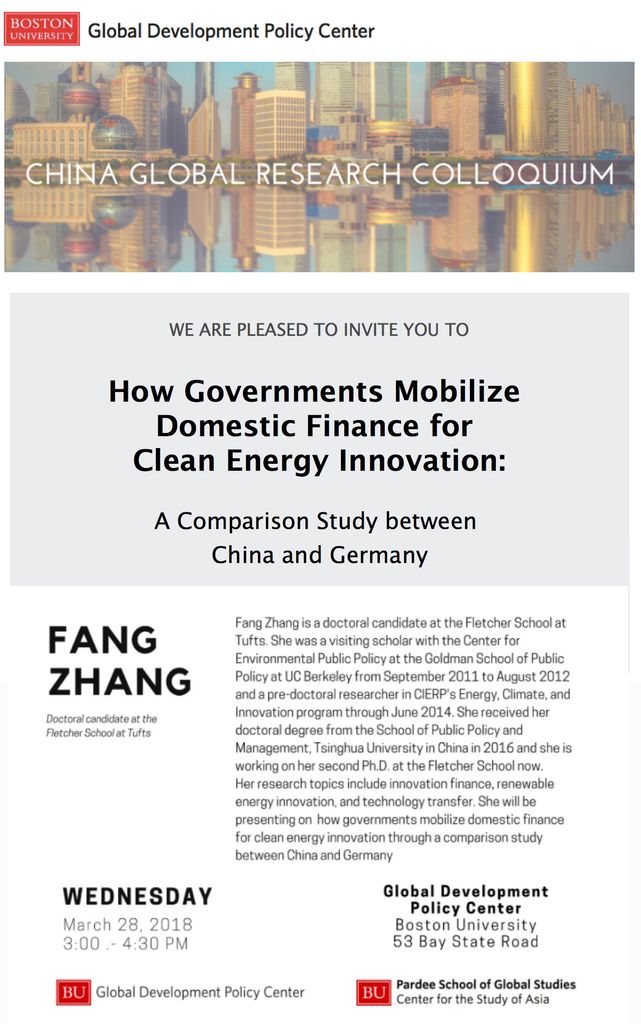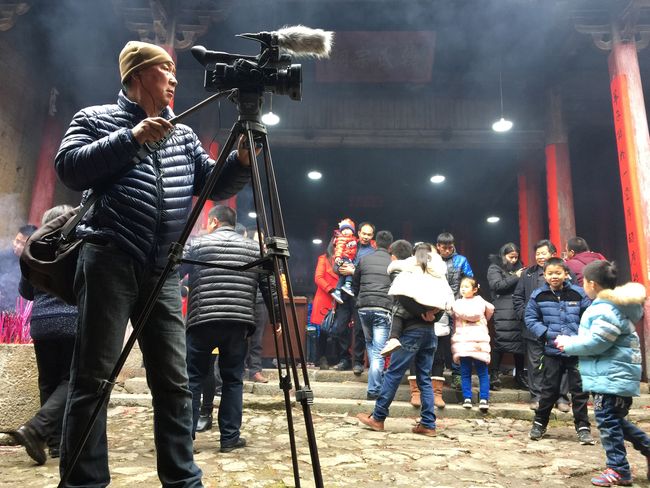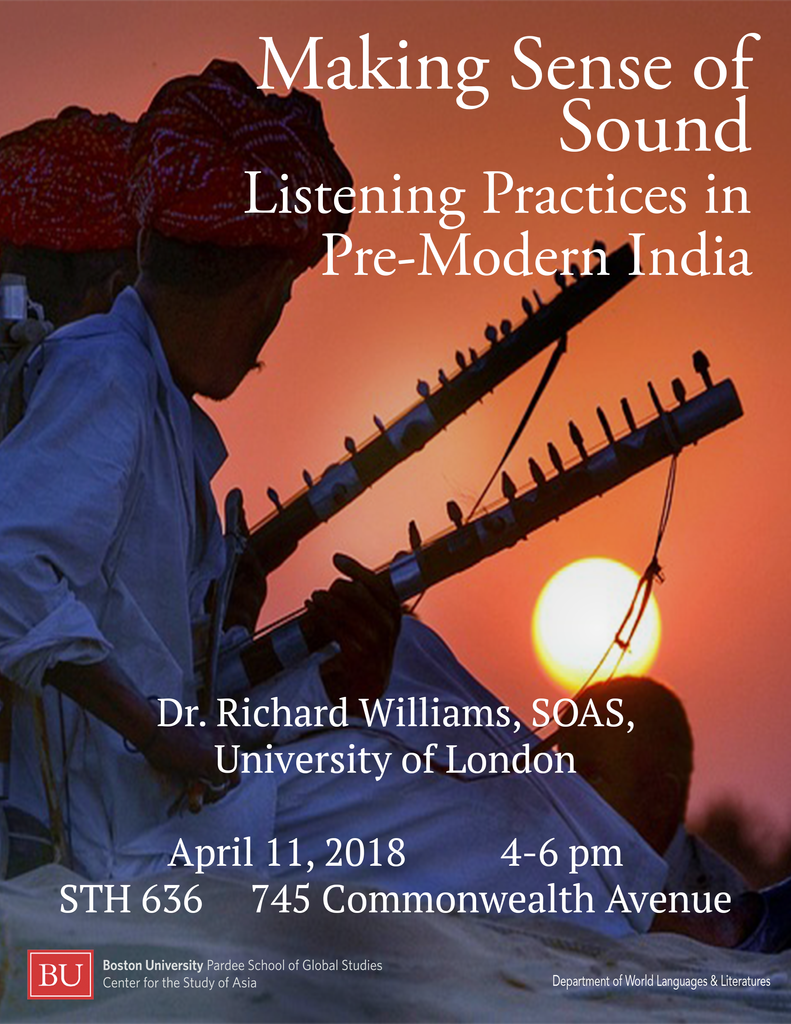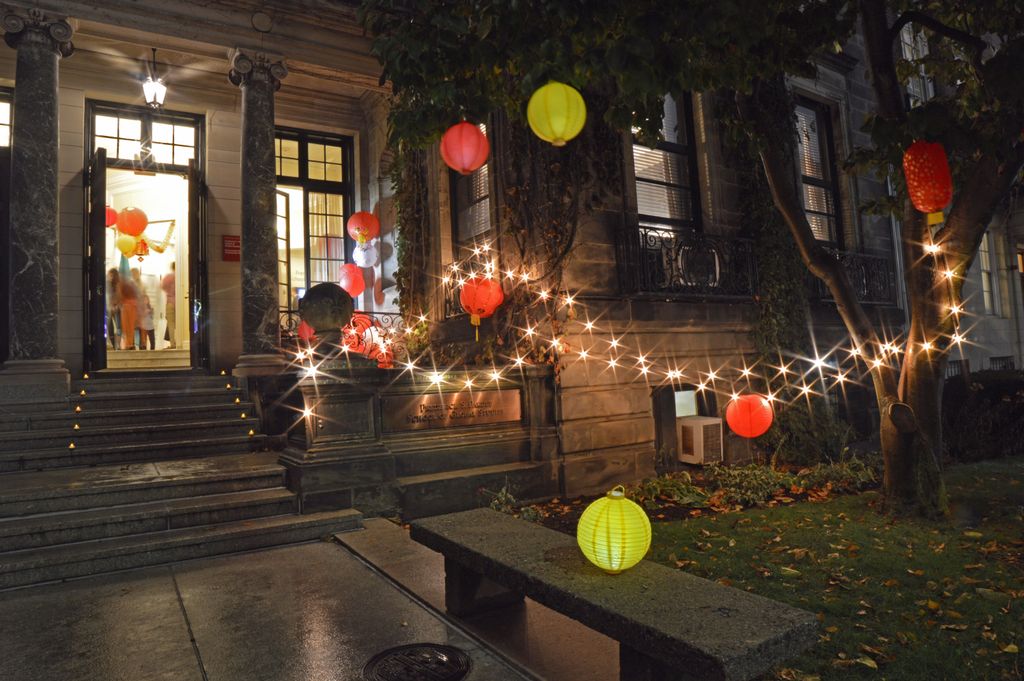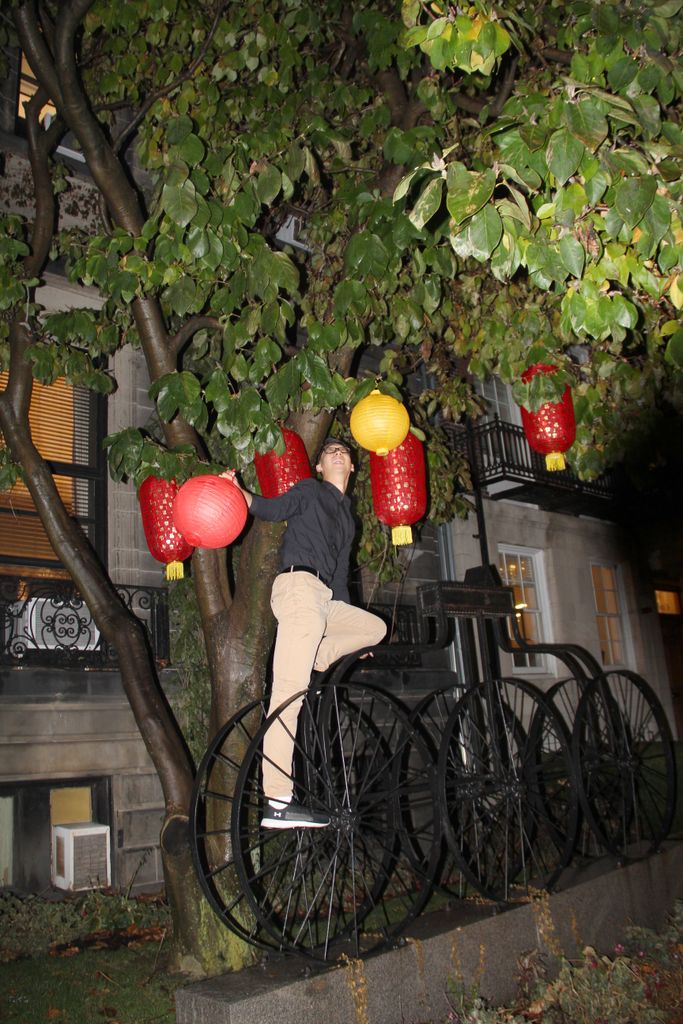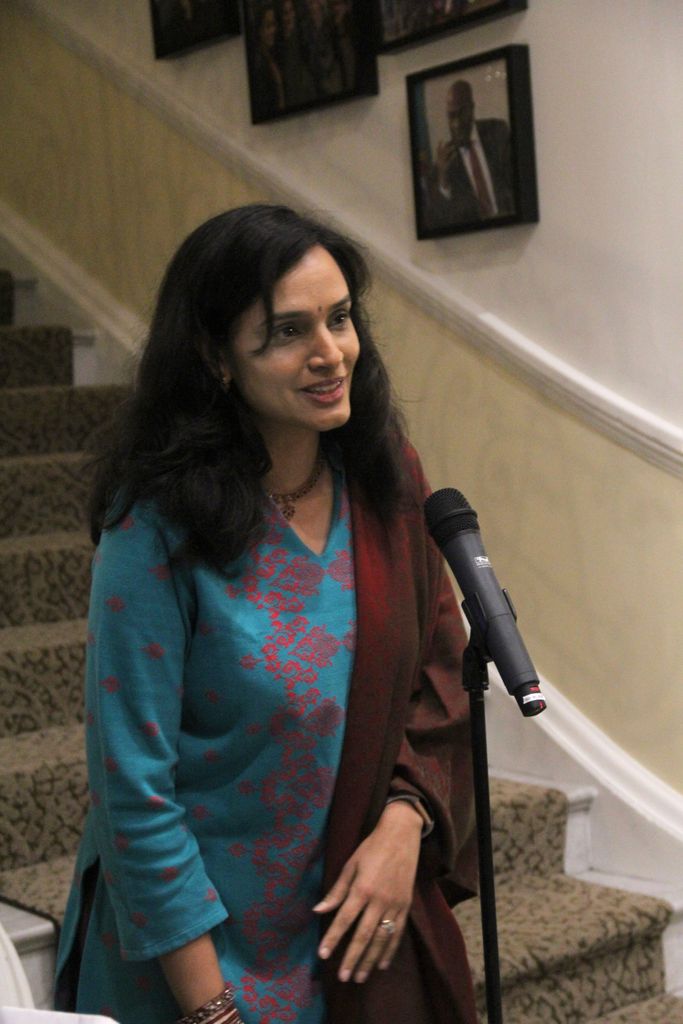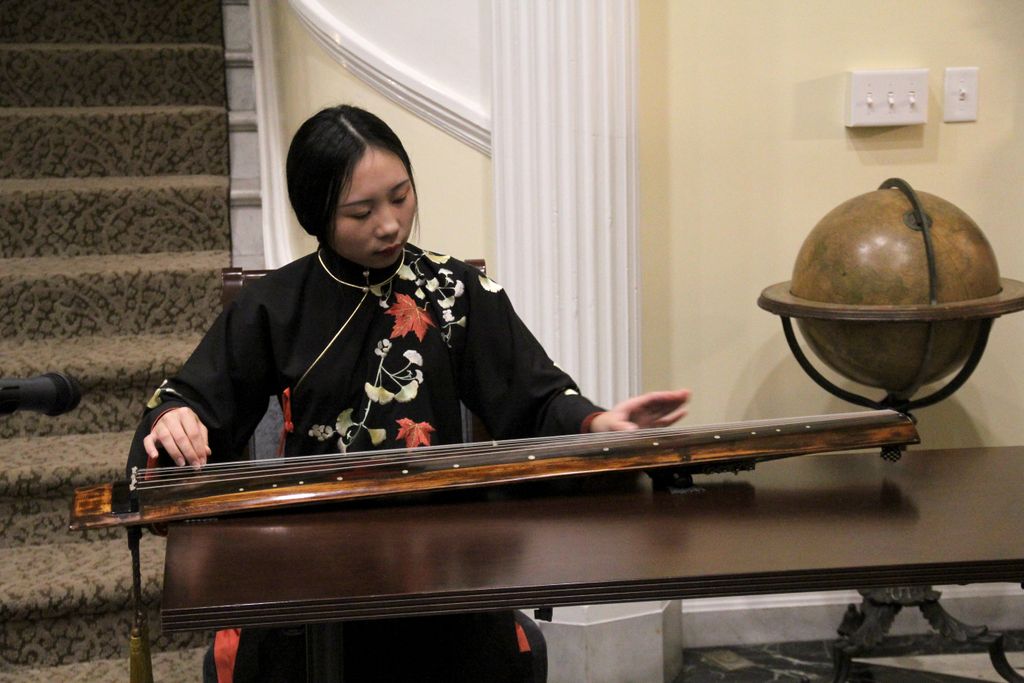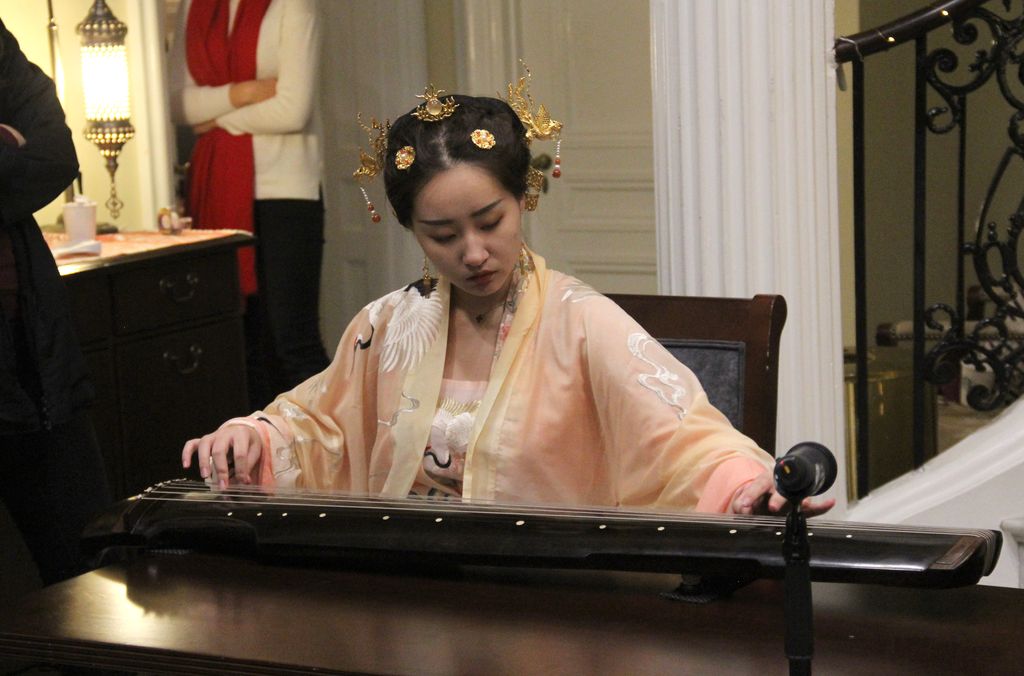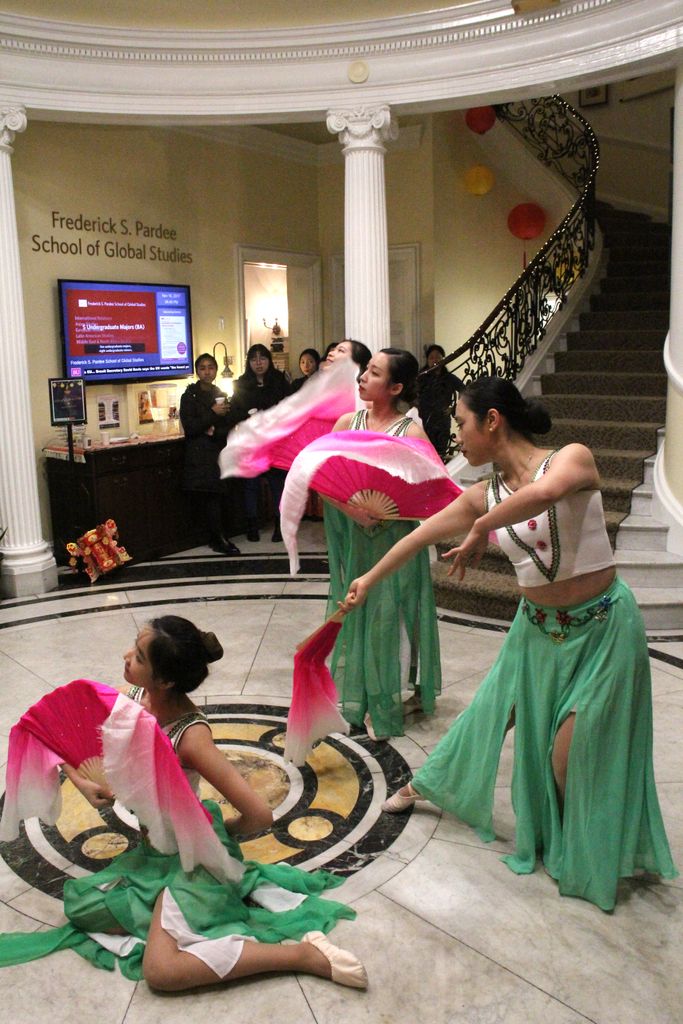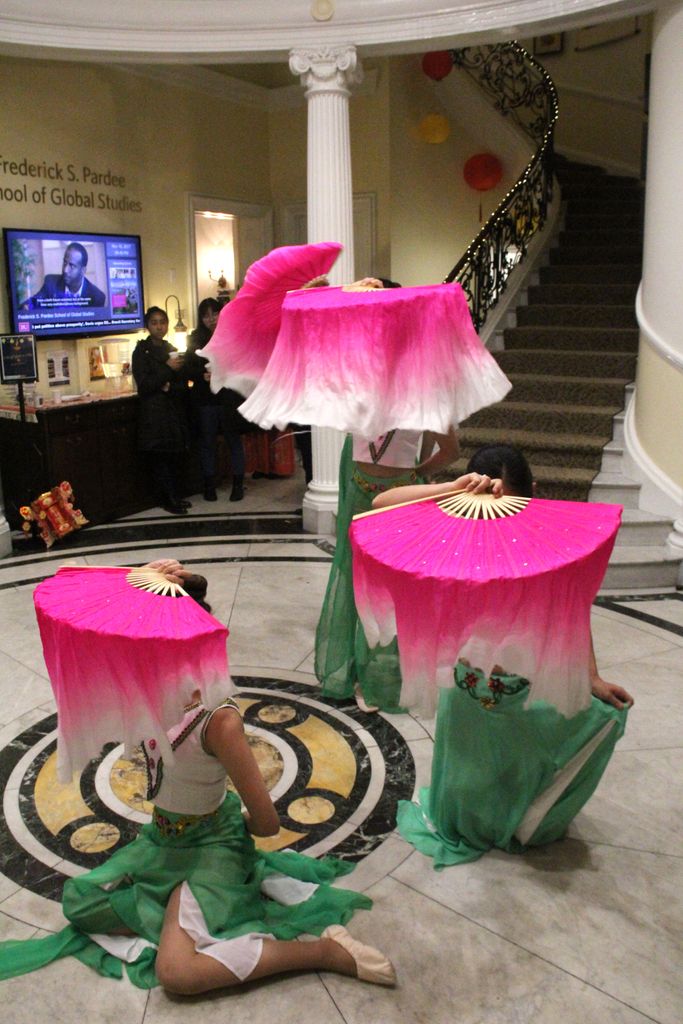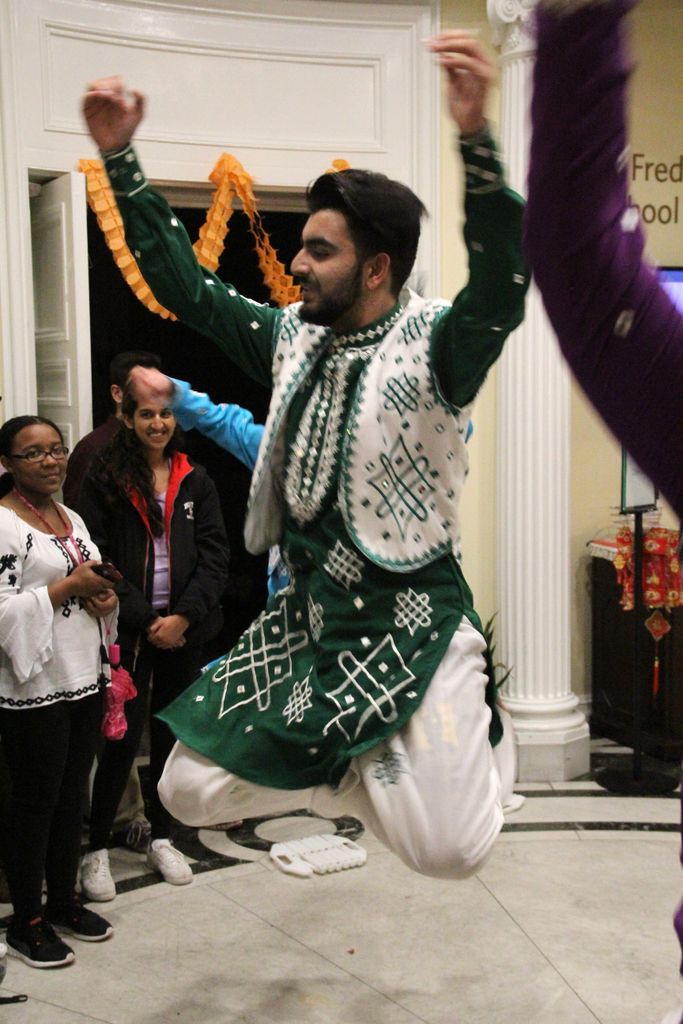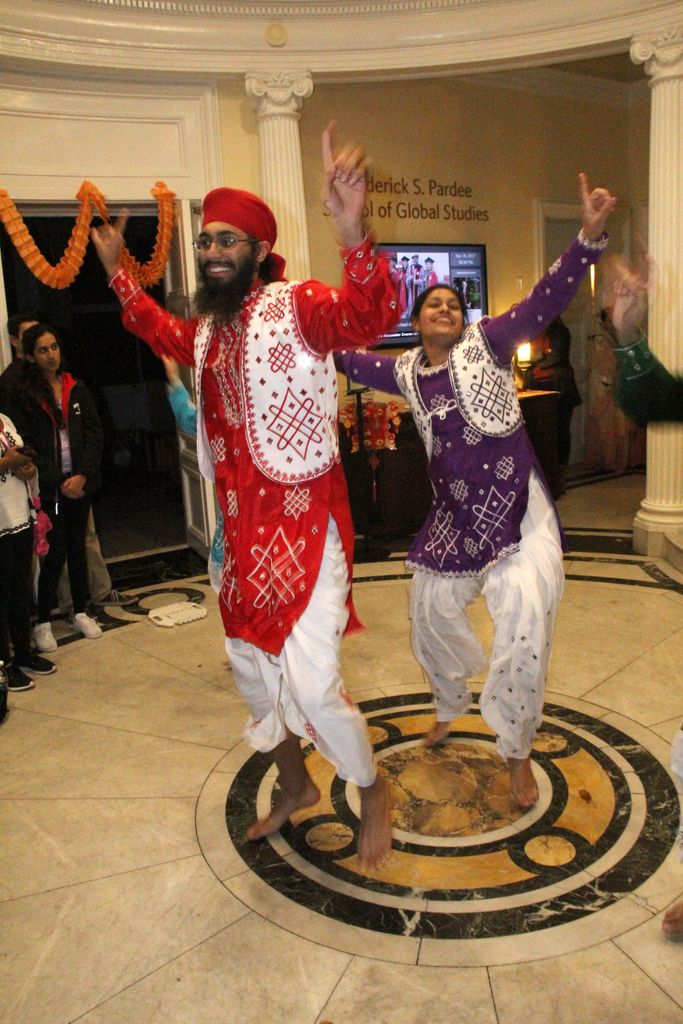History in Images, History in Words: In Search of Facts in Documentary Filmmaking
History in Images, History in Words:
In Search of Facts
in Documentary Filmmaking
A lecture by Carma Hinton
Robinson Professor of Visual Culture and Chinese Studies at George Mason University
Monday April 10, 2017 from 4-7 pm
at the Photonics Center (9th fl.), 8 St. Mary’s Street, Boston University
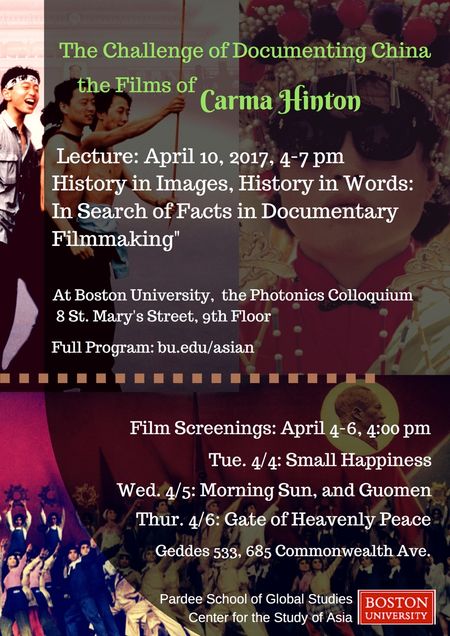 My presentation will focus on the process of documentary filmmaking, especially the many challenges my team and I faced in trying to create engaging filmic narratives that are both factually accurate and encompass multiple perspectives. I will use excerpts from my films as well as out-takes to illustrate the difficulties in determining what information to include and exclude, assess the compromises involved in the choices, and explore the consequences of taking various possible paths. I will also address the different problems that a historian encounters when presenting history in images as opposed to in words: the potential and limitation of each medium and what information each might privilege or obscure. I believe that in this age of “alternative facts” and “parallel universes,” reflections on the challenges in obtaining authenticity and truth and the importance of relentlessly striving to reach this goal, take on particularly urgent meaning.
My presentation will focus on the process of documentary filmmaking, especially the many challenges my team and I faced in trying to create engaging filmic narratives that are both factually accurate and encompass multiple perspectives. I will use excerpts from my films as well as out-takes to illustrate the difficulties in determining what information to include and exclude, assess the compromises involved in the choices, and explore the consequences of taking various possible paths. I will also address the different problems that a historian encounters when presenting history in images as opposed to in words: the potential and limitation of each medium and what information each might privilege or obscure. I believe that in this age of “alternative facts” and “parallel universes,” reflections on the challenges in obtaining authenticity and truth and the importance of relentlessly striving to reach this goal, take on particularly urgent meaning.
About the speaker:
Carma Hinton is an art historian and a filmmaker. She received her Ph.D. in Art History from Harvard University and is now Robinson Professor of Visual Culture and Chinese Studies at George Mason University. Together with Richard Gordon, Hinton has directed many documentary films, including Small Happiness, All Under Heaven, To Taste a Hundred Herbs, Abode of Illusion: The Life and Art of Chang Dai-chien, The Gate of Heavenly Peace, and Morning Sun. She has won two Peabody Awards, the American Historical Association’s John E. O’Connor Film Award, the International Critics Prize and the Best Social and Political Documentary at the Banff Television Festival, and a National News & Documentary Emmy, among others. Hinton is currently working on a book about Chinese scrolls depicting the theme of demon quelling. Carma Hinton was born in Beijing. Chinese is her first language and culture.

How Governments Mobilize Domestic Finance for Clean Energy Innovation: A Comparison Study between China and Germany
The BU Global Development Policy Center and the Center for the Study of Asia are pleased to present
The China Global Research Colloquium
for Clean Energy Innovation:
The lecture will take place at:
The Global Development Policy Center
53 Bay State Road, Boston University
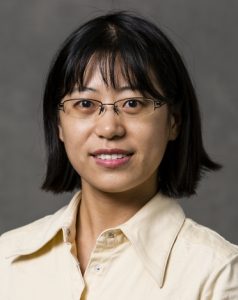 Fang Zhang is a doctoral candidate at the Fletcher School at Tufts. She was a visiting scholar with the Center for Environmental Public Policy at the Goldman School of Public Policy at UC-Berkeley from September 2011 to August 2012, and a pre-doctoral researcher in CIERP's Energy, Climate, and Innovation program through June 2014. She received her doctoral degree in 2016 from the School of Public Policy and Management, Tsinghua University (Beijing, China), and she is working on her second Ph.D. at the Fletcher School now. Her research topics include innovation finance, renewable energy innovation, and technology transfer. She will be presenting on how governments mobilize domestic finance for clean energy innovation through a comparison study between China and Germany.
Fang Zhang is a doctoral candidate at the Fletcher School at Tufts. She was a visiting scholar with the Center for Environmental Public Policy at the Goldman School of Public Policy at UC-Berkeley from September 2011 to August 2012, and a pre-doctoral researcher in CIERP's Energy, Climate, and Innovation program through June 2014. She received her doctoral degree in 2016 from the School of Public Policy and Management, Tsinghua University (Beijing, China), and she is working on her second Ph.D. at the Fletcher School now. Her research topics include innovation finance, renewable energy innovation, and technology transfer. She will be presenting on how governments mobilize domestic finance for clean energy innovation through a comparison study between China and Germany.
This event is co-sponsored by BU's Global Development Policy Center and the BU Center for the Study of Asia.
Yogic Traditions and Sacred Sound Practices in the United States
Yogic Traditions and Sacred Sound Practices in the United States:
A Symposium of Scholarly Presentations and an Evening Concert of Indian Music and Kirtan
Friday, April 6, 2018
![5_Vasant_Ragini_folio_from_a_Ragamala_Series_(Garland_of_Musical_Modes),_Amber,_early_17,_Metmuseum [detail]](/asian/files/2018/03/5_Vasant_Ragini_folio_from_a_Ragamala_Series_Garland_of_Musical_Modes_Amber_early_17_Metmuseum-detail-545x636.jpg)
Detail from Vasant Ragini folio from a Ragamala Series (Garland of Musical Modes).
Metropolitan Museum of Art
Co-sponsored by the Boston University Department of Musicology and Ethnomusicology and the BU Center for the Study of Asia, with key support from the BU Center for the Humanities and the BU Arts Initiative.
The all-day symposium will take place at
BU Photonics Center (8 St. Mary's St., Boston) 9th floor 8:30 am to 5:30 pmand the evening performances of Indian vocal music on yogic themes
and a range of kirtan chants will take place in
Marsh Chapel (735 Commonwealth Ave., Boston) at Boston University, 8-10 pm
“Yogic Traditions and Sacred Sound Practices in the United States”
Organized by Dr. Brita Renée Heimarck (BU Dept. of Musicology and Ethnomusicology)
From Sanskrit treatises to yogic investigations of sound, ethnographic studies and experimental composers, this symposium will investigate a broad range of yogic philosophies of sound and sacred sound practices that represent various traditions across the United States. Several presentations will also trace the historical roots of these practices in Indian philosophical and Sanskrit literature.
The afternoon will include a Nada yoga workshop by Igor Iwanek, and a keynote lecture by renowned scholar Guy Beck, author of Sonic Theology: Hinduism and Sacred Sound (1993), Sonic Liturgy: Ritual and Music in Hindu Tradition (2012), and author in and editor of Sacred Sound: Experiencing Music in World Religions (2006).
The all-day symposium will take place on the 9th floor of the Photonics Center at Boston University (8 St. Mary's St., Boston), on April 6, 2018, from 8:30 am-5:30 pm, and the evening concert of Indian vocal music on yogic themes and a range of kirtan chants will take place in Marsh Chapel (735 Commonwealth Ave., Boston) at Boston University, 8-10 pm, April 6, 2018. These events are free and open to the public. Guest artists include Guy Beck on vocals, Igor Iwanek on harmonium, Jerry Leake on tabla, and Jake Slesnick on mridangam.
Organized by Dr. Brita Heimarck with co-sponsorship by the BU Center for the Study of Asia (Catherine Yeh, Robert Murowchick, and Wen-Hao Tien), and the BU Department of Musicology and Ethnomusicology (Dr. Victor Coelho, Chair).
Symposium Themes
The symposium will explore sacred sound practices in the ancient and contemporary liminal space between music and religion, spiritual practices and beliefs, and theologies of sound. An interdisciplinary group of scholars representing disciplines from ethnomusicology and anthropology to religious studies, Sanskrit, and theology, will give research presentations on the sacred sound or music practices of Vedic chanting, the history and philosophy of yoga as well as musical theologies of the Tantras, and diverse yoga traditions currently practiced in the U.S.
The symposium will cover several main topics. The presentations will begin with the historical and literary lineages of Indian yogic traditions currently practiced in the U.S., including a substantial section on Indian sound concepts, early music treatises, and the history and philosophy of yoga. The remainder of the presentations will delineate diverse ethnographic traditions practiced in the U.S. that draw upon Indian yogic thought and sacred music practices. These presentations may touch upon the sacred sound practices of Siddha yoga, Nada yoga, Hatha yoga, American musical experimentalism, and adaptations of kirtan or sacred chanting in many different forms. Several of these presentations will draw upon the ethnomusicological and anthropological methodology of in-depth interviews to investigate peoples’ experiences of diverse sound practices and the meanings individuals and culture groups ascribe to these practices.

Symposium Schedule (BU Photonics Center, 9th Floor)
8-8:30 am: Morning Coffee and Pastries
Panel 1: History of Yogic Thought, Mantra, and South Asian Theologies of Sacred Sound
8:30-9 am: Dr. Finnian M. M. Gerety (Institute of Sacred Music, Yale University; Ph.D. in South Asian Studies, Harvard University), “In Search of ‘Union’: Vedic OM and the Roots of Mantra Meditation in Yogic Traditions.”
9-9:30 am: Dr. Ben Williams (Assistant Professor of Religious Studies and Yoga Studies, Naropa University; Ph.D. in South Asia Studies, Harvard University; M.T.S. in Hindu Studies, Harvard Divinity School), “Nāda in Early Saiva Tantras and Treatises on Music.”
9:30-10 am: Seth Powell (Ph.D. Candidate, South Asian Religions, Harvard University) “Yogic Concentration on the Inner Sounds: Nadanusandhana in Hathayoga Literature.”
10-10:15 am: Break
Panel 2: Technologies and Archaeologies of the Sacred and the Sacred Sound Practices of Devotional Communities in the U.S.
10:15-10:45 am: Dr. Angela Rudert (Lecturer in Religious Studies, Dept. of Philosophy and Religion, Ithaca College; Ph.D., Religion and South Asian Studies, Syracuse University), “Sacred Sound in Gurumaa’s Devotional Circle.”
10:45-11:15 am: Dr. Brita Heimarck (Associate Professor, Boston University; Ph.D. in Music/ Ethnomusicology, Cornell University), “Sacred Archaeologies of Sound.”
11:30 am - 12:30 pm: Lunch Break (on your own)
Panel 3: American Experiments with Tantric Breathing, Bhakti Yoga, and Self-Research
12:30-1:00 pm: Dr. Kerry O’Brien (Lecturer, Yale University; Ph.D., Indiana University), “Shyam Bhatnagar, Musical Experimentalism, and the Self-Research Institute.”
1:00-1:30 pm: Dr. Eben Graves (Mellon Postdoctoral Fellow and Lecturer in Music, Dept. of Music, Columbia University; Ph.D. in Ethnomusicology, UT Austin), “Yukta Vairagya or Yogic Renunciation in New York Krishna-Core.”
1:30-2:00 pm: Christopher Miller (MA in Comparative Theology, Loyola Marymount University, and Ph.D. candidate in Religious Studies, UC Davis), “Paramahansa Yogananda and the Hinduization of Protestant Devotional Singing.”
2:00-2:15: Break
Kirtan Roundtable: American Adaptations of Kirtan and the Question of Race
2:15-2:30 pm: Karen Hefford (MA Theology student, Regent College, Vancouver B.C.), “American Individualism and Post-Secular Strategies Evident in Kirtan Practices of the Pacific Northwest.”
2:30-2:45 pm: Megan Murph (Ph.D. Candidate in Musicology/Ethnomusicology, University of Kentucky), “Sonic Explorations in the Yoga Studios of Lexington, Kentucky.”
2:45-3:00 pm: Dr. Meghan Hynson (Visiting Assistant Professor of Ethnomusicology, Duquesne University; Ph.D. UCLA), “Modern Musical Expressions of Bhakti: The Kirtan Rabbi and the Changing Kirtan Culture of Los Angeles.”
3:00-3:15 pm: Margaret Rowley (Ph.D. student in Ethnomusicology, Boston University), “There’s Only One God, and We’re It: Kirtan and the Racial Imaginary.”
3:15-3:25 pm: Dr. André de Quadros (Professor of Music, Boston University), Chair and Discussant
3:25-3:45 pm: Open discussion
3:45-4:00 pm: Break
4:00-4:30 pm: Nada Yoga Workshop Dr. Igor Iwanek (D.M.A. in Composition and Theory, Boston University), “Nada Yoga (Yoga of Sound): the Practice of Sacred Sound and Vibration, its Philosophy and its Modern Application.”
4:30-5:30 pm: Keynote Speaker: Dr. Guy Beck (Fulbright-Nehru Senior Research Fellow in India 2010 and 2016; Visiting Fellow at the Oxford Centre for Hindu Studies 2001; Lecturer in Philosophy, Religious Studies, and Asian Studies, Tulane University; M.A. Musicology, Ph.D., Religion, South Asia, Syracuse University) “Understanding Indian Sacred Sound Concepts and Liturgical, Musical, or Ritual Practices in the American Context.”
5:30-8:00 pm: Dinner break (on your own)
8:00-10:00 pm: “Practitioner Pandits” Performances and “Kirtan Extravaganza”
in Marsh Chapel, 735 Commonwealth Avenue, Boston University
Shuchita Rao, Sanskrit Invocation and Hindi Prayer; Guy Beck, Indian Vocal Music on Yoga Themes; Igor Iwanek (ragas on harmonium), André de Quadros (Sufi songs), Brita Heimarck and Paul Coggins (namasankirtana), with Guest Artists: Shyam Nepali on sarangi (bowed lute of Nepal), Shiva Ramakrishnan on bansuri (Indian flute), Vikaasa Ramdas on Indian mandolin, Jerry Leake on tabla, Jake Slesnick on mridangam, and many wonderful singers contributing to this event.
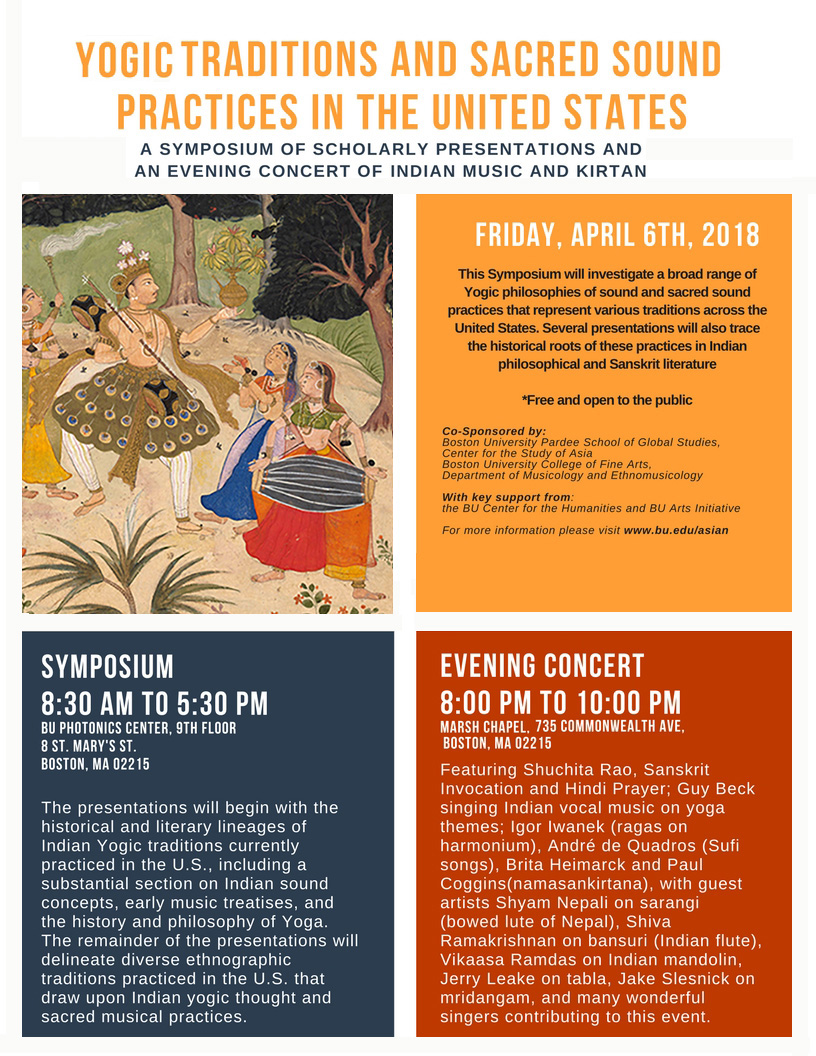
XU Xing: In Residence at BU
XU Xing: In Residence at BU
The BU Center for the Study of Asia and the BU Arts Initiative are please to welcome Chinese documentary filmmaker XU Xing 徐星 to BU for a three month residency. Please join us for the following public programs:
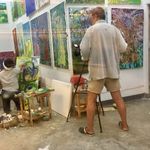
Open Studio
Chat with Xu Xing about filmmaking, camera work, storytelling, & more
Monday, March 26 at 4:30-6 p.m.
Boston University School of Theology, STH Room 636 (745 Commonwealth Ave.)
Free & Open to BU Students – no RSVP required.
Screening & discussion: Xu Xing’s documentary film Summary of Crimes 罪证摘要 (2013)
Thursday, March 29th at 7 p.m.
Jacob Sleeper Auditorium (College of General Studies, 871 Commonwealth Ave.)
Free and open to the public, but you must RSVP.
Much of what we know about China’s Cultural Revolution (1966-1976) concerns the experience of officials and intellectuals. Our understanding of these “ten years of turmoil,” which erupted more than fifty years ago, is therefore urban, with a focus on the China’s political and cultural elites. In his film “Summary of Crimes,” director Xu Xing tackles the question of what happened in the countryside and at the grassroots, in interviews with a group of peasants convicted as counterrevolutionaries during the Cultural Revolution. For many years these peasants had no way of articulating their past sufferings, nor did society at large have any way of accessing the way the Cultural Revolution marked their life courses.
“Summary of Crimes” runs 132 minutes in Chinese with English subtitles.
Other Boston-Area Events:
The Struggle Between Private Memory and the State's Master Narrative of the Past
Wednesday, April 4 from 4:30-6 p.m.
Harvard Ed Portal at Harvard University, 224 Western Avenue, Allston, MA 02134
View and discuss Xu Xing's film, A Chronicle of My Cultural Revolution 我的文革编年史 (2009)
Giving Voice to the Powerless Against the Silence of the Official Narrative
Friday, April 20 at 6:30 p.m.
Pao Arts Center 包氏文藝中心, 99 Albany Street, Boston MA 02111
View Xu Xing's film, The Day of Reckoning 腊月三十日到来 (2017)
XU Xing 徐星 is a prominent Chinese writer and documentary filmmaker. Often called ”The Chinese Jack Kerouac,” his works have consistently engaged with national and international issues of politics, power, and moral responsibility. At the same time these larger issues are always evoked through the lives of the common working people in China. We are delighted to announce that with support from the BU Arts Initiative and the BU Center for the Humanities, we have invited XU Xing to Boston University as BUCSA’s first incumbent of the Artist and Writer in Residence program. With this program we hope to provide opportunities for our students and faculty to interact with unusual and outstanding writers and artists as an interdisciplinary and cross-school collaborative experience.
Xu enjoyed his most prolific period as a writer during the 1980s and 1990s, and his books reached a broad international audience when they were translated into French, English and German. These works include “Variations Without a Theme” 无主题变奏 and “All That is Left is Yours ” 剩下的都属于你. In the early 1990s he migrated to Germany, staying in Heidelberg. After returning to his hometown Beijing, he began shooting documentary films. His work A Chronicle of My Cultural Revolution 我的文革编年史 (2009) was based on his personal experiences growing up in the Chinese Cultural Revolution. In his 2015 documentary Summary of Crimes 罪证摘要, Xu searches for peasants in Zhejiang who had been sentenced to up to 20 years in prison during the Cultural Revolution. His most recent work (2017) is his new film The Day of Reckoning 腊月三十日到来, which uses a heartbreaking love story between a husband and wife as a vehicle with which to confront the contortions of China’s political history since 1949.
Xu Xing will be in residence at Boston University from early February until late April. He will be co-teaching a film course with Prof. Cathy Yeh on the New Chinese documentary movement which began during the 1990s and continues until today. His films will be screened during the time he is at BU and he will offer several workshops on different aspects of documentary filmmaking. In addition to one public lecture at BU, he will be also be reaching out to the greater Boston community where he will be giving lectures and screenings of his films.
Making Sense of Sound: Listening Practices in Pre-Modern India
Making Sense of Sound: Listening Practices in Pre-Modern India
Wednesday, April 11, 2018 at 4:00pm
Dr. Richard Williams, SOAS, University of London
The lecture will take place at:School of Theology, Boston University, Room 636
China Global Research Colloquium
CHINA GLOBAL RESEARCH COLLOQUIUM
"Conceptualizing China-Latin America Relations in the 21st Century"
Wednesday April 11, 2018, 3:00 - 4:30pm
The Colloqiuium will take place at
Global Development Policy Center, Boston University
53 Bay State Road
China Global Research Colloquium
CHINA GLOBAL RESEARCH COLLOQUIUM
"Official Aid or Export Credit: China's Policy Banks and their Reshaping of Development-Finance Paradigm"
Thursday April 12, 2018, 3:00 - 4:30pm
The Colloqiuium will take place at
Global Development Policy Center, Boston University
53 Bay State Road
Boston College Institute for Advanced Jesuit Studies Colloquium. Calamity from Within? Jesuits, Papal Legates, and Chinese Imperial Envoys in the 18th c.
Institute for Advanced Jesuit Studies Colloquium
Calamity from Within? Jesuits, Papal Legates,
and Chinese Imperial Envoys in the Eighteenth Century
Presented by the Boston College Institute for Advanced Jesuit Studies in collaboration with The Boston College Libraries)
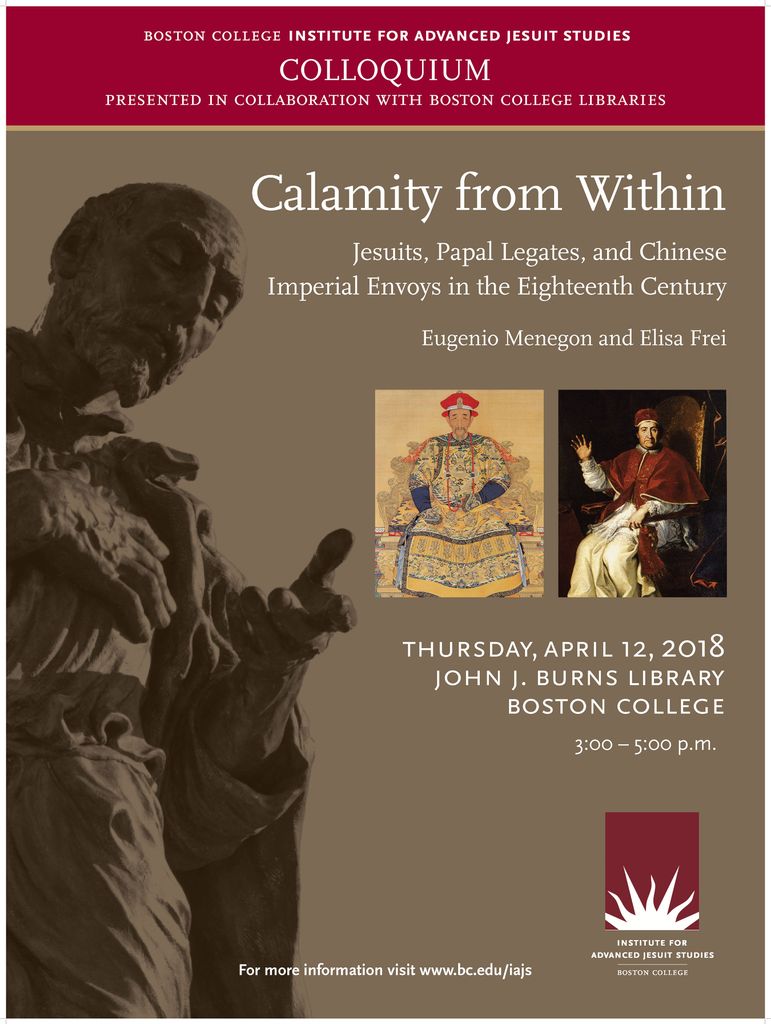
The lecture will take place at:The John J. Burns Library, Boston College
140 Commonwealth Avenue, Chestnut Hill, MA
The Chinese Rites Controversy developed into a political, theological and intellectual struggle between monarchs, popes, diplomats, theologians and philosophers that lasted over a century (1635-1742) and left many victims in its wake—a “calamity from within” the Church and the Jesuit order.
The Controversy centered on the following questions: Were Chinese family ancestral rituals and ceremonies to Confucius civic in nature? Could Chinese converts engage in these rituals and ceremonies without compromising their new Christian religion? The Jesuit missionaries in China believed they could, and in 1700 they found in the Kangxi Emperor of the Qing dynasty an advocate for their position. Other missionaries and, ultimately, the papacy, did not concur, and labeled the rites as idolatrous.
Elisa Frei and Eugenio Menegon will focus their presentations on the lives of some Jesuits of the China mission who traveled across the oceans, cared deeply about the issues, took sides, played politics, and suffered dire consequences for doing so. Their experiences represent a microcosm of the Controversy and reveal its global reach as a clash of cultures and a unique phenomenon in early modern intellectual and religious history.
PROGRAM
INTRODUCTION
“Sino-Western Relations and the Chinese Rites Controversy in the Eighteenth Century”
Prof. Eugenio Menegon
Department of History, Boston University
& Collaborative Scholar, Institute for Advanced Jesuit Studies
FIRST PRESENTATION
"For the Greater Good of Our Order.
Jesuits Betting on the Rites Controversy”
Dr. Elisa Frei
Fellow, Institute for Advanced Jesuit Studies, Boston College
Two Jesuits reacted very differently to the difficulties caused by the Rites Controversy in the Chinese empire, despite similar experiences and background. Agostino Cappelli (Ascoli, 1679 - Malabar, 1715) and Ludovico Gonzaga (Mantua, 1673 - Macao, 1718) promised the General of the Society of Jesus they were ready to do anything in order to be sent to the East Indies missions. Cappelli wrote one of his petitions with blood, while Gonzaga proclaimed that, while he wished to go to China, he would prefer Japan in order to be martyred there. Both men had their requests accepted, arriving in Macau together in 1707. Five years before, the pope had dispatched the Apostolic Legate Charles Maillard de Tournon from Rome to inform the Jesuits in China that they could no longer practice their accomodatio (adaptation) and that any new converts had to publicly refuse the rites honoring Confucius and their ancestors. The Chinese emperor became irate and ordered the Portuguese to place Tournon under house arrest in Macao. Cappelli befriended the captive legate and agreed with his position, believing that a Jesuit had to obey the pope and not the emperor—even if this meant rejecting years of successful practices. Gonzaga was sent to Beijing as an imperial mathematician and instead defended the official Jesuit position. Thanks to his friendship with Tournon, Cappelli moved to India, leaving behind a trail of criticism from his confreres, who, like Gonzaga, saw him as a traitor. From the Chinese capital, Gonzaga could do nothing but complain about his Jesuit brother’s behavior and desperately hope for a positive outcome of the Controversy. Choosing the “right” side was, in those years, very hard for individual Jesuits—almost a bet, because no one could know how the matter would end.
SECOND PRESENTATION
“The Tragic Jesuit Embassy of the Kangxi Emperor to Pope Clement XI”
Prof. Eugenio Menegon
After the arrest of Legate Tournon in Macao, the Kangxi Emperor decided in 1707 to send as the Qing imperial envoy to Rome the China Jesuit Giuseppe Antonio Provana (1662-1720), the scion of a noble family from the Dukedom of Savoy. Provana was tasked with informing the papacy about the imperial endorsement of the Chinese Rites. Once he reached Rome in 1709, the Jesuit presented a dossier of imperial documents on the rites, which the pope read at once. The pontiff also personally participated in the deliberations of the Holy Office on the matter. In the meanwhile, Tournon’s procurator in Rome, Abbot Giangiacomo Fatinelli, orchestrated a defamation campaign against Provana and the Jesuits. Provana became isolated at the papal court, and the Jesuit General ordered him to retreat in exile to the Jesuit province of Milan, rather than return to Beijing with a response to Kangxi’s questions. In 1715, the papacy issued the constitution Ex illa die prohibiting the Chinese Rites to Catholics, an action that enraged the Qing emperor. In response, Kangxi asked the pope for the immediate return of his envoy, to report on his mission. Together with his young Chinese companion Luigi Fan Shouyi SJ, a sickly Provana embarked in 1719 for China and died at sea. Kangxi immediately summoned Fan to court, learning about the Roman plots against the Jesuits and the affronts against his emissary. These revelations partly doomed to failure the second papal legation to China, led by Carlo Ambrogio Mezzabarba in 1720-21. Provana’s tragic experience uncovers the tensions within the Jesuit role at the Qing court. As both subjects of the Chinese empire and missionaries of the Catholic Church, the Jesuits found themselves between a rock and a hard place. Some, like Provana, paid dearly for their dedication to both Emperor and Church.
Q&A
REFRESHMENTS
BROWSING OF IN-SITU BOOK EXHIBIT
ON THE CHINESE RITES CONTROVERSY
For complete details on this event at Boston College, visit the event web page at http://www.bc.edu/centers/iajs/Programs/institute-colloquium-.html

Eugenio Menegon is Associate Professor of Chinese History at Boston University, and Collaborative Scholar at the Institute for Advanced Jesuit Studies at Boston College. He has published extensively on the history of Chinese-Western relations, and is the author of Ancestors, Virgins, and Friars: Christianity as a Local Religion in Late Imperial China, Harvard Asia Center and Harvard University Press, 2009, which was the recipient of the 2011 Levenson Prize in Chinese Studies (Association for Asian Studies). His current book project is an examination of the daily life and political networking of European residents at the Qing court in Beijing during the 17th-18th centuries.

Elisa Frei is an Institute Fellow at the Institute for Advanced Jesuit Studies. She received her doctorate in the History of Societies, Institutions, and Thought at the University of Trieste/Udine in 2017. During her yearlong residency at Boston College, Frei is developing her doctoral dissertation, Outpouring of Hearts on Fire: Italian Jesuits Asking for the Indies (1678-1730 ca.), into a monographic-length publication as well as publishing articles, presenting her work at academic conferences, and engaging in other Institute initiatives.
Visions of Sound: Okakura Kakuzō, John La Farge, and the Transsensorial Imagination
Visions of Sound: Okakura Kakuzō, John La Farge, and the Transsensorial Imagination
Thursday, April 12, 2018 at 5:30 pm
Co-sponsored by the Boston University Department of History of Art & Architecture (College of Arts and Sciences), and the BU Center for the Study of Asia (Frederick S. Pardee School of Global Studies)

The lecture will take place at:BU Photonics Center, Room 211, 8 St. Mary's St., Boston, MA
“Visions of Sound: Okakura Kakuzō, John La Farge, and the Transsensorial Imagination”
This talk discusses the evocation of music and sounds in the work of the Japanese art historian Okakura Kakuzō (1863-1913) and the American artist John La Farge (1835-1910). Ever since the summer of 1886 when they first met in Japan, Okakura and La Farge enjoyed a friendship that continued until the artist’s death. The cultural significance of this friendship has not yet been closely examined, however. This talk looks at their relationship by considering their shared interest in the transsensorial dimension of the aesthetic experience wherein the visual, the auditory, and other senses such as the haptic merge. La Farge pursued this interest in his two late mural paintings on the subject of Confucius for the Minnesota State Capitol (1905) and the Baltimore Courthouse (1906), while the trans- and multi-sensorial experience also became a major theme in Okakura’s The Book of Tea (1906), which the Japanese author dedicated to the American artist.
About the Speaker:
 Prof. Noriko Murai is Associate Professor of Art History at Sophia University in Tokyo, Japan, and a Visiting Scholar at the Reischauer Institute of Japanese Studies, Harvard University (2017-2018). She is particularly interested in visual creativity that crosses and challenges established boundaries, such as between different cultures, different media, or between art and nature. One of her research interests is the presentation, reception, and interpretation of Japanese art and aesthetics in the US around the turn of the 20th century. More recently, she has also been working on modern ikebana, or Japanese floral art. At Sophia University, she teaches courses in modern Japanese art, Japonisme, and gender and visual representation.
Prof. Noriko Murai is Associate Professor of Art History at Sophia University in Tokyo, Japan, and a Visiting Scholar at the Reischauer Institute of Japanese Studies, Harvard University (2017-2018). She is particularly interested in visual creativity that crosses and challenges established boundaries, such as between different cultures, different media, or between art and nature. One of her research interests is the presentation, reception, and interpretation of Japanese art and aesthetics in the US around the turn of the 20th century. More recently, she has also been working on modern ikebana, or Japanese floral art. At Sophia University, she teaches courses in modern Japanese art, Japonisme, and gender and visual representation.
Prof. Murai earned her B.A. degree in History of Art at the University of California-Berkeley, and her M.A. and Ph.D. degrees from Harvard's Dept. of History of Art and Architecture. Her many publications include Journeys East: Isabella Stewart Gardner and Asia, co-authored with Alan Chong, et al. (Boston: Isabella Stewart Gardner Museum, 2009); Nihon bungaku no hon’yaku to ryūtsū—kindai sekai no nettowāku e [Translation and Circulation of Japanese Literature: Into the Network of Modernity], co-edited with Kono Shion (Tokyo: Bensei Shuppan, 2017); Inventing Asia: American Perceptions around 1900, co-edited with Alan Chong (Boston: Isabella Stewart Gardner Museum, 2014).
Organized by Boston University Department of History of Art & Architecture and Boston University Center for the Study of Asia
End of Semester in Review: Art of Letters and Art of Light
As the end of the semester draws near, we would like to share with you several highlights of our Fall Art of Letters and Art of Light events, the first two parts of BUCSA’s 2017-2018 annual theme, Asia’s Cultural Heritage.
Art of Letters

In September and October, four major events took place to celebrate The Art of Letters:
 The semester began with the Comparative Persianate Aesthetics Symposium (Boston University, September 28-29, 2017) organized by Emine Fetvaci and Sunil Sharma. The conference focused on the changing relationship among literary and historical texts and paintings and Persian cosmopolitan models from the 16th through 18th centuries, and how they themselves became starting points for the development of distinctive traditions that drew inspiration from local and regionally-specific cultural practices, including the non-courtly.
The semester began with the Comparative Persianate Aesthetics Symposium (Boston University, September 28-29, 2017) organized by Emine Fetvaci and Sunil Sharma. The conference focused on the changing relationship among literary and historical texts and paintings and Persian cosmopolitan models from the 16th through 18th centuries, and how they themselves became starting points for the development of distinctive traditions that drew inspiration from local and regionally-specific cultural practices, including the non-courtly.
The conference brought together junior and senior American and international scholars and both the lectures and discussion created an intense intellectual experience for the participants. It was no surprise that the event was well attended, with standing room only for most of the two days.
Link: http://www.mizanproject.org/defining-the-persianate/
 Our next major Art of Letters event was the conference Haiku as World Literature: A Celebration of the 150th Birthday of Haiku Poet Masaoka Shiki (Boston University, October 12-13, 2017), organized by Keith Vincent. Haiku is perhaps the best travelled of all world literary genres. Since the 17th century, when Matsuo Bashō wrote his masterpiece, The Narrow Road to the Deep North, haiku poets have embarked on countless figural and literal journeys, and they have taken the genre with them. By the 18th and 19th centuries, dense social networks of haiku poets crisscrossed the whole of Japan, and by the early 20th century, haiku in its modern form had spread across the globe through the work of poets including Ezra Pound, Rabindrath Tagore, Frederico Garcia Lorca, and Zhou Zuoren 周作人. Today millions of people write haiku in Japanese and dozens of other languages. The symposium focused on the haiku poet Masaoka Shiki正岡子規 (1867-1902), who despite spending the last seven years of his short life immobilized by tuberculosis, contributed more than any other poet to the genre’s emergence as a globe-trotting literary form.
Our next major Art of Letters event was the conference Haiku as World Literature: A Celebration of the 150th Birthday of Haiku Poet Masaoka Shiki (Boston University, October 12-13, 2017), organized by Keith Vincent. Haiku is perhaps the best travelled of all world literary genres. Since the 17th century, when Matsuo Bashō wrote his masterpiece, The Narrow Road to the Deep North, haiku poets have embarked on countless figural and literal journeys, and they have taken the genre with them. By the 18th and 19th centuries, dense social networks of haiku poets crisscrossed the whole of Japan, and by the early 20th century, haiku in its modern form had spread across the globe through the work of poets including Ezra Pound, Rabindrath Tagore, Frederico Garcia Lorca, and Zhou Zuoren 周作人. Today millions of people write haiku in Japanese and dozens of other languages. The symposium focused on the haiku poet Masaoka Shiki正岡子規 (1867-1902), who despite spending the last seven years of his short life immobilized by tuberculosis, contributed more than any other poet to the genre’s emergence as a globe-trotting literary form.
This engaging and inspiring conference was a reflection of the energy, commitment, and leadership of Prof. Keith Vincent. We were delighted to see the synergies that emerged among the participating scholars from all over the world and many BU faculty and students from the departments of World Languages and Literatures, English, and Romance Studies. The conference also emphasized the exciting ways in which scholarship interacts with society. One of the highlights of the event was the celebration of the recent digitization of some 145 back issues of Shiki Kaishi, the official journal of the Matsuyama Shiki Society, a treasure trove of original research on Masaoka Shiki and his circle written by the Society’s members. This important digital resource is being made available on the Open BU open access repository. Nanae Tamura of the Society was among the speakers at the Haiku conference.
 Story-telling is an integral part of The Art of Letters, and we were delighted to co-host the event Dastangoi: The Art of Storytelling (Boston University, October 27, 2017) featuring Ankit Chadha, India's leading practitioner of dastangoi, which literally means to “tell an epic.” With origins back to the 8th century but almost lost since the 19th century, dastangoi is the art of traditional Urdu story-telling in northern India that recalls tales of war, exploration, and heroism. The renowned dastango Chadha explained the journey of this art form through time and space, demonstrating with selected narratives about the 7th c. adventures of the great warrior and hero Amir Hamza, the uncle of Prophet Mohammed. Never moving from his seated position, Chadha enthralled his audience with diverse facial expressions and animated hand gestures that brought his oral tales to life
Story-telling is an integral part of The Art of Letters, and we were delighted to co-host the event Dastangoi: The Art of Storytelling (Boston University, October 27, 2017) featuring Ankit Chadha, India's leading practitioner of dastangoi, which literally means to “tell an epic.” With origins back to the 8th century but almost lost since the 19th century, dastangoi is the art of traditional Urdu story-telling in northern India that recalls tales of war, exploration, and heroism. The renowned dastango Chadha explained the journey of this art form through time and space, demonstrating with selected narratives about the 7th c. adventures of the great warrior and hero Amir Hamza, the uncle of Prophet Mohammed. Never moving from his seated position, Chadha enthralled his audience with diverse facial expressions and animated hand gestures that brought his oral tales to life
Link: https://www.bu.edu/asian/2017/08/10/dastangoi-the-art-of-storytelling/
Art of Light

Our theme The Art of Light took place during the months of November and December, during which BUCSA held or co-sponsored three major events.
 Diwali and the Art of Light in Asia, which took place on November 16, 2017, was a wonderful celebration organized and co-sponsored by the Boston University Center for the Study of Asia (BUCSA), along with ASIABU and the Hindi-Urdu Program. The festivities took place over the course of three hours at the Frederick S. Pardee School of Global Studies at 121 Bay State Road, with diverse performances performed by BU students and faculty, for which we are especially thankful for the support and assistance from Brita Heimarck of the College of Fine Arts, Shilpa Parnami of WLL, Shaobin Zheng of ASIABU, and the BU Center for the Humanities. The performances included a traditional Indonesian shadow play accompanied by a gamelan ensemble, a performance of traditional Chinese gu qin 古琴 instruments by members of the Zhaohua Chinese Culture Club, lively dance demonstrations by Verge Dance Company and by Bhangra, and rousing a capella singing by the groups SUNO and KhaTarnaK. Participants also enjoyed a selection of Chinese and Indian foods while surrounded indoors and out by an incredible arrangement of paper lanterns and candles. This fantastic and magical evening brought much light and energy to Bay State Road on an otherwise cold and rainy evening.
Diwali and the Art of Light in Asia, which took place on November 16, 2017, was a wonderful celebration organized and co-sponsored by the Boston University Center for the Study of Asia (BUCSA), along with ASIABU and the Hindi-Urdu Program. The festivities took place over the course of three hours at the Frederick S. Pardee School of Global Studies at 121 Bay State Road, with diverse performances performed by BU students and faculty, for which we are especially thankful for the support and assistance from Brita Heimarck of the College of Fine Arts, Shilpa Parnami of WLL, Shaobin Zheng of ASIABU, and the BU Center for the Humanities. The performances included a traditional Indonesian shadow play accompanied by a gamelan ensemble, a performance of traditional Chinese gu qin 古琴 instruments by members of the Zhaohua Chinese Culture Club, lively dance demonstrations by Verge Dance Company and by Bhangra, and rousing a capella singing by the groups SUNO and KhaTarnaK. Participants also enjoyed a selection of Chinese and Indian foods while surrounded indoors and out by an incredible arrangement of paper lanterns and candles. This fantastic and magical evening brought much light and energy to Bay State Road on an otherwise cold and rainy evening.
Link: https://www.bu.edu/asian/2017/11/29/event-in-review-art-of-light-in-asia-111617/

On December 6, an overflow crowd of students and faculty were mesmerized by Harvard Prof. Ian Miller’s lecture, When Tokyo Went Electric: Electricity Theft and the Materiality of Modern Life, sponsored by the Dept. of the History of Art and Architecture and cosponsored by BUCSA and the BU Initiative on Cities. Prof. Miller wove an engaging story of the history of energy in Meiji and modern Japan, and the impacts that the choices of energy source have had on Japanese urban design, the clash between traditional and modern, interactions with foreign companies and individuals like Thomas Edison, and other aspects of Japanese culture and society. This is a fascinating story that continues to this day, as seen in the challenges facing the Tokyo Electric Power Company (TEPCO), owner of the Fukushima Daiichi Nuclear Power Plant, and debates about Japan’s energy options for the future.
 Our roster of fall events concluded on Dec. 7 with the screening of the film Paper Lanterns followed by a discussion with its Director Barry Frechette and Producer Peter Grilli. This award-winning film tells the moving story of a Japanese survivor of the Hiroshima A-bomb who spent decades trying to reconstruct the stories of twelve American POW’s who were being held in Hiroshima at that time, and to identify and locate their families in the US so that the fate of their loved ones could finally be understood.
Our roster of fall events concluded on Dec. 7 with the screening of the film Paper Lanterns followed by a discussion with its Director Barry Frechette and Producer Peter Grilli. This award-winning film tells the moving story of a Japanese survivor of the Hiroshima A-bomb who spent decades trying to reconstruct the stories of twelve American POW’s who were being held in Hiroshima at that time, and to identify and locate their families in the US so that the fate of their loved ones could finally be understood.
Film trailer link: https://vimeo.com/181266396
Looking ahead at the Spring 2018 term, the New Year will bring a celebration of The Art of Ritual in February and March). Our programs will include a symposium “The Global Nature of Qing Court Art,” as part of our ongoing Taiwan Forum series and organized by Eugenio Menegon (February 2, 2018), a New England Asia Seminar event “Contested Heritage: Monuments, Politics, and Memory in Asia,” organized by Robert Murowchick (March 16, 2018), and an international conference Asia’s New Religions, organized by Rob Weller (March 19-20, 2018). Among the events planned for the Art of Movement and Sound will be “Yogic Traditions and Sacred Sound Practices in the United States,” a symposium organized by Brita Renée Heimarck (April 6, 2018), and the launching of our BUCSA online exhibition, Asia at the World’s Fairs, the first two components of which will focus on dance and architecture.
The spring semester will also bring more additions to our BUCSA website www.bu.edu/asian, including a new section that will highlight our faculty and student research projects. Please send your project information and photos to Robert Murowchick for inclusion in this new and important section of our site.
Event in Review: Art of Light in Asia (11/16/17)
On November 16, 2017, Boston University Center for the Study of Asia (BUCSA), along with ASIABU and Hindi-Urdu Program organized a successful event, celebrating Diwali and the Art of Light in Asia. The celebrations took place at Pardee School of Global Studies (121 Bay State Road), lasting for over three hours as we enjoyed a selection of Chinese and Indian food, were surrounded by an incredible arrangement of paper lanterns and candles, and watched a variety of Boston University performances that lasted throughout the night.
Highlights included performances by Balinese Shadow Theatre, Zhaohua Chinese Culture Club, Verge Dance Company, Bhangra, SUNO and KhaTarnaK.
For access to full video footages of the performances, please send an email to Janet Liu (janetl8@bu.edu).
We would like to thank those who had attended and celebrated the Art of Light in Asia with us. We hope you had fun, and we look forward to seeing you at our next event!
